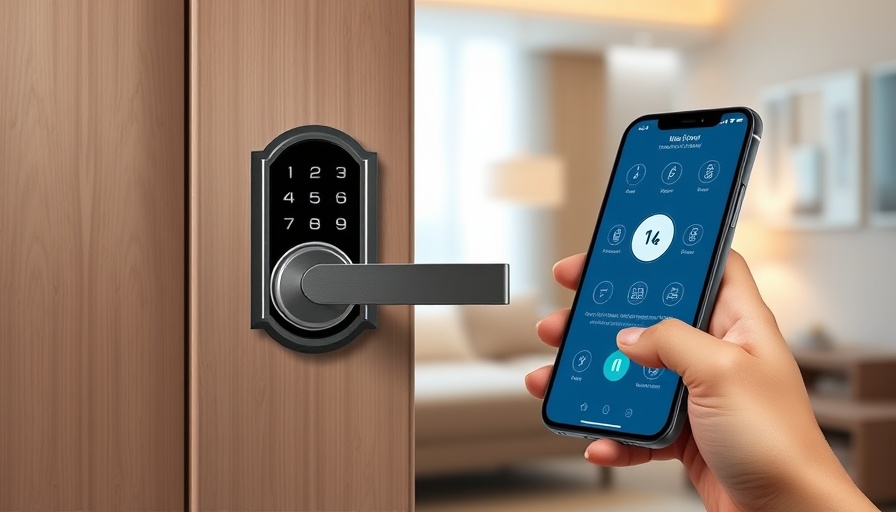
Are Smart Homes Living Up to Their Security Promises?
In the age of technology, our homes might feel like they’re getting a makeover straight out of a science fiction flick. But let’s peel back the layers of convenience and automation—are smart homes really safe? With devices connected to the Internet of Things (IoT), while our daily routines become smoother, we are also opening the door to serious cybersecurity vulnerabilities.
Understanding the Vulnerabilities: The IoT Risk
As we incorporate more smart devices into our lives, the realm of possibilities offers both exceptional convenience and potential danger. According to experts, a significant number of IoT devices are launched with inadequate built-in security, making them prime targets for hackers. From smart speakers and cameras to thermostats and refrigerators, if a connected device can be hacked, your personal information is at risk. One study revealed that more than 70% of IoT devices lacked proper security features before they were sold to consumers.
With hackers increasingly exploiting these weaknesses, it's essential to arm yourself with knowledge. Changing the default passwords of all smart devices to strong, unique passwords and enabling two-factor authentication (2FA) are fundamental steps that any smart homeowner should take. Of course, the strategies don’t stop there.
A Practical Look at Securing Your Smart Home
While it may seem daunting, protecting your smart home can be straightforward. Consider implementing these strategies to create a fortress around your interconnected devices:
- Change Default Passwords: Right out of the box, most devices come with generic passwords. Immediately changing them to a complex combination of characters is crucial.
- Educate Yourself on Wi-Fi Security: Don't just set up your smart home and forget about your network. Use WPA3 encryption if your router supports it, and set up a guest network for your IoT devices to isolate them from personal computers.
- Automatic Updates: Regularly check and ensure that the firmware on your devices is up to date to fend off potential vulnerabilities.
The Domino Effect: How One Weak Link Can Compromise Safety
The nature of IoT means that these interconnected devices can lead to significantly larger problems when one is compromised. Hackers have been known to harness weakly protected smart devices to launch attacks on entire networks, effectively creating a botnet. Imagine if your thermostat was used to compromise your home network, allowing hackers to infiltrate private and secure areas of your life online.
This demonstrates how vital it is to view each smart device as a collective part of a larger security ecosystem within your home. The need for vigilance cannot be overstated; making a mistake with one connected gadget can have lasting repercussions.
Looking Forward: Future Predictions on Smart Home Security
The future is likely to see an increasing focus on smart home security standards being adopted by manufacturers. Some tech companies are already beginning to implement more stringent security measures in response to consumer demand for safety. AI is being utilized to recognize unusual behavioral patterns which can alert you of potential breaches before it becomes too late. As smart home technology continues to develop, these enhanced security features will likely become the standard rather than the exception.
Taking the Next Steps: Actions to Consider for Safeguarding Your Smart Home
For homeowners invested in smart technology, staying aware of evolving cyber threats is key to creating a secure living space. It’s not merely about adopting technology; it’s about embracing responsibility. Continuous monitoring of your smart home systems along with educating family members ensures that all residents are on board with security practices.
The bottom line is that while smart homes offer unparalleled convenience and efficiency, they also come with responsibilities and risks. By adopting proactive measures today, you can turn your home into a safe haven rather than an inviting target for cybercriminals who are constantly on the lookout for easy breaches.
Conclusion: Why Your Home’s Safety Matters
In conclusion, the convenience of a smart home should not come at the cost of security. Protecting your privacy and personal information is paramount in a world where our data is increasingly vulnerable. Take the time to follow these insights, secure your smart devices, and ensure your home supports a balanced life between modern technology and fundamental security.
 Add Row
Add Row  Add
Add 




 Add Row
Add Row  Add
Add 
Write A Comment